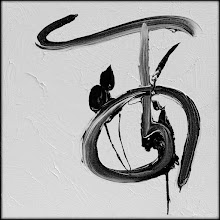Crime in America (from October, 2005)
One cannot have freedom from crime. If there is society, some form of organized cooperative effort to coexist together, our nature as human beings ensures that at some point there will be conflict, and conflict breeds contempt, and contempt breeds retaliation; ergo, crime. Simply put, a crime is something done which is forbidden by law, or something not done which is required by law. To expand on that definition, crime can be painted with a much broader brush. In the course of daily events, if a person or persons through intentional action or inaction causes harm to another human being, or beings, this is a crime. Two key elements of crime are harm, and intent. Although the actual definition of what constitutes harm can be somewhat nebulous, harm is a given, but intent can be very subtle, and intent is an integral aspect of what constitutes a crime. Not necessarily the intent to commit a crime, but the intent to act or not to act, the choices made which result ultimately in a criminal act denotes complicity.
When Bush reacts to the terrorist attacks of 2001 by ignoring the principles of law on which this nation is founded, he has committed a criminal act. When Bush’s actions are upheld by the 4th U.S. Circuit Court of Appeals, the court is then committing a crime against the nation, against the laws it is sworn to uphold. Robert F. Hawes writing for the Sierra Times,
Governmental crime is a subtle, rampant issue. From the abridgment of Constitutional rights, to the arbitrary citing of traffic violations, to actions taken by officials in violation of the law because they have no oath of office, the citizens of the
Freedom has historically been, and still is today the boisterous cry from the American people, but freedom comes at a great cost. Freedom is a violent, tumultuous course. Even though
The criminal source is deep within our society, hidden within the political, governmental, and corporate systems. The true crime in this country is the confidence game being played out against the majority by the elite few. The wealthy contingent in America, the 5% of the population who control 45% of the country’s assets make well calculated decisions solely for their own interests, but by influencing politicians and government officials and judges, by controlling the corporate management of this country, the Executive, Legislative, and Judicial branches of our government, this 5% of the population effectively fool the other 95% of the population into believing that the majority rules. Through advertising and politicking the majority is given an ideal to pursue, the proverbial carrot in the form of the American Dream. This mollifies the majority into compliance, keeps the populace impotent to effect change, and keeps the majority, the mice in the maze all scurrying around seeking to satisfy their own self interest. There is division among the elite, but this only supports the system that separates the classes. Each elite faction fuels just enough of the poor and middle class opposing factions so as to keep the 95% from becoming a coalesced, organized majority. It is the ancient Latin maxim, Divide et impera which has been used throughout history by so many cultures in war and in government. If the 95% of the population, the poor and the middle class ever managed to put aside their self interest for but a moment, the revolution would come. The subtle underlying crime of the state and the elite would be stopped.
No group can ever be completely and totally free of crime, but the more sinister and subtle crime of the wealthy elite standing on the backs of the common man could be eliminated. The American people could rise up and take control of their lives, establish a new society, free from the tyranny of the elite. Although 100% freedom is anarchy, eliminating the control of the elite would establish a more free society for the majority, but is that truly what the majority want? The American people could have more freedom. Unfortunately, the one aspect of American patriotism that is true; if you want freedom, you must believe it is worth dying for. Now that I think about it, maybe I’m happier just being a mouse in a maze. Maybe the perceived safety of captivity is just right for me. I wouldn’t say, “Give me liberty or give me death.” as did Patrick Henry in 1775. I think I would say, “Give me a warm meal and then let me sleep.”


0 Comments:
Post a Comment
<< Home